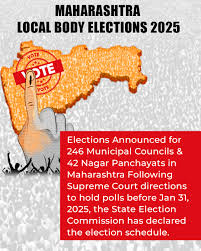
(Sections 13, 14-18, 39, 53, 55, 66)

Section 13. “Consent” defined.
Two or more persons are said to consent when they agree upon the same thing in the same sense.
Section 14. “Free consent” defined.
Consent is said to be free when it is not caused by–
(1) coercion, as defined in section 15, or
(2) undue influence, as defined in section 16, or
(3) fraud, as defined in section 17, or
(4) misrepresentation, as defined in section 18, or
(5) mistake, subject to the provisions of sections 20, 21 and 22.
Consent is said to be so caused when it would not have been given but for the existence of such coercion, undue influence, fraud, misrepresentation or mistake.
Section 15. “Coercion” defined.
“Coercion” is the committing, or threatening to commit, any act forbidden by the Indian Penal Code (45 of 1860) or the unlawful detaining, or threatening to detain, any property, to the prejudice of any person whatever, with the intention of causing any person to enter into an agreement.
Explanation.—It is immaterial whether the Indian Penal Code (45 of 1860) is or is not in force in the place where the coercion is employed.
Illustration
A, on board an English ship on the high seas, causes B to enter into an agreement by an act amounting to criminal intimidation under the Indian Penal Code. (45 of 1860).
A afterwards sues B for breach of contract at Calcutta.
A has employed coercion, although his act is not an offence by the law of England, and although section 506 of the Indian Penal Code (45 of 1860) was not in force at the time when or place where the act was done.
Section 16. “Undue influence” defined.
1[16. Undue influence defined.– (1) A contract is said to be induced by “undue influence” where the relations subsisting between the parties are such that one of the parties is in a position to dominate the will of the other and uses that position to obtain an unfair advantage over the other.
(2) In particular and without prejudice to the generality of the foregoing principle, a person is deemed to be in a position to dominate the will of another–
(a) where he holds a real or apparent authority over the other, or where he stands in a fiduciary relation to the other; or
(b) where he makes a contract with a person whose mental capacity is temporarily or permanently affected by reason of age, illness, or mental or bodily distress.
(3) Where a person who is in a position to dominate the will of another, enters into a contract with him, and the transaction appears, on the face of it or on the evidence adduced, to be unconscionable, the burden of proving that such contract was not induced by undue influence shall lie upon the person in a position to dominate the will of the other.
Nothing in this sub-section shall affect the provisions of section 111 of the Indian Evidence Act, 1872 (1 of 1872).
Illustrations
(a) A having advanced money to his son, B, during his minority, upon Bs coming of age obtains, by misuse of parental influence, a bond from B for a greater amount than the sum due in respect of the advance. A employs undue influence.
(b) A, a man enfeebled by disease or age, is induced, by Bs influence over him as his medical attendant, to agree to pay B an unreasonable sum for his professional services, B employs undue influence.
(c) A, being in debt to B, the money-lender of his village, contracts a fresh loan on terms which appear to be unconscionable. It lies on B to prove that the contract was not induced by undue influence.
(d) A applies to a banker for a loan at a time when there is stringency in the money market. The banker declines to make the loan except at an unusually high rate of interest. A accepts the loan on these terms. This is a transaction in the ordinary course of business, and the contract is not induced by undue influence.]
Section 17. “Fraud” defined.
“Fraud” means and includes any of the following acts committed by a party to a contract, or with his connivance, or by his agent1 , with intent to deceive another party thereto of his agent, or to induce him to enter into the contract:—
(1) the suggestion, as a fact, of that which is not true, by one who does not believe it to be true;
(2) the active concealment of a fact by one having knowledge or belief of the fact;
(3) a promise made without any intention of performing it;
(4) any other act fitted to deceive;
(5) any such act or omission as the law specially declares to be fraudulent.
Explanation.—Mere silence as to facts likely to affect the willingness of a person to enter into a contract is not fraud, unless the circumstances of the case are such that, regard being had to them, it is the duty of the person keeping silence to speak2 , or unless his silence is, in itself, equivalent to speech.
Illustrations
(a) A sells, by auction, to B, a horse which A knows to be unsound. A says nothing to B about the horses unsoundness. This is not fraud in A.
(b) B is As daughter and has just come of age. Here, the relation between the parties would make it As duty to tell B if the horse is unsound.
(c) B says to A—”If you do not deny it, I shall assume that the horse is sound.” A says nothing. Here, As silence is equivalent to speech.
(d) A and B, being traders, enter upon a contract. A has private information of a change in prices which would affect Bs willingness to proceed with the contract. A is not bound to inform B.
Section 18. “Misrepresentation” defined.
“Misrepresentation” means and includes—
(1) the positive assertion, in a manner not warranted by the information of the person making it, of that which is not true, though he believes it to be true;
(2) any breach of duty which, without an intent to deceive, gains an advantage to the person committing it, or any one claiming under him; by misleading another to his prejudice, or to the prejudice of any one claiming under him;
(3) causing, however innocently, a party to an agreement, to make a mistake as to the substance of the thing which is the subject of the agreement.
Section 39. Effect of refusal of party to perform promise wholly.
When a party to a contract has refused to perform, or disabled himself from performing, his promise in its entirety, the promisee may put an end to the contract, unless he has signified, by words or conduct, his acquiescence in its continuance.
Illustrations
(a) A, a singer, enters into a contract with B, the manager of a theatre, to sing at his theatre two nights in every week during the next two months, and B engages to pay her 100 rupees for each night’s performance. On the sixth night A wilfully absents herself from the theatre. B is at liberty to put an end to the contract.
(b) A, a singer, enters into a contract with B, the manager of a theatre, to sing at his theatre two night’ in every week during the next two months, and B engages to pay her at the rate of 100 rupees for each night. On the sixth night, A wilfully absents herself. With the assent of B, A sings on the seventh night. B has signified his acquiescence in the continuance of the contract, and cannot now put an end to it, but is entitled to compensation for the damage sustained by him through A’s failure to sing on the sixth night.
Section 53. Liability of party preventing event on which the contract is to take effect.
When a contract contains reciprocal promises, and one party to the contract prevents the other from performing his promise, the contract becomes voidable at the option of the party so prevented; and he is entitled to compensation from the other party for any loss which he may sustain in consequence of the nonperformance of the contract.
Illustration
A and B contract that B shall execute certain work for A for a thousand rupees. B is ready and willing to execute the work accordingly, but A prevents him from doing so. The contract is voidable at the option of B; and, if he elects to rescind it, he is entitled to recover from A compensation for any loss which he has incurred by its non-performance.
Section 55. Effect of failure to perform at fixed time, in contract in which time is essential.
When a party to a contract promises to do a certain thing at or before a specified time, or certain things at or before specified times, and fails to do any such thing at or before the specified time, the contract, or so much of it as has not been performed, becomes voidable at the option of the promisee, if the intention of the parties was that time should be of the essence of the contract.
Effect of such failure when time is not essential.–If it was not the intention of the parties that time should be of the essence of the contract, the contract does not become voidable by the failure to do such thing at or before the specified time; but the promisee is entitled to compensation from the promisor for any loss occasioned to him by such failure.
Effect of acceptance of performance at time other than that agreed upon.–If, in case of a contract voidable on account of the promisor’s failure to perform his promise at the time agreed, the promisee accepts performance of such promise at any time other than that agreed, the promisee cannot claim compensation for any loss occasioned by the non-performance of the promise at the time agreed, unless, at the time of such acceptance, he gives notice to the promisor of his intention to do so.1
STATE AMENDMENT
Uttar Pradesh.–
Amendment of section 55.–In section 55 of the Principal Act, in the third paragraph, for the words “unless at the time of such acceptance he gives notice to the promiser of his intention to do so”, the words “where at the time of such acceptance he has waived his right to do so” shall be substituted.”
[Vide Uttar Pradesh 57 of 1976, s. 26]
Section 66. Mode of communicating or revoking rescission of voidable contract.
The rescission of a voidable contract may be communicated or revoked in the same manner, and subject to the same rules, as apply to the communication or revocation of a proposal.





